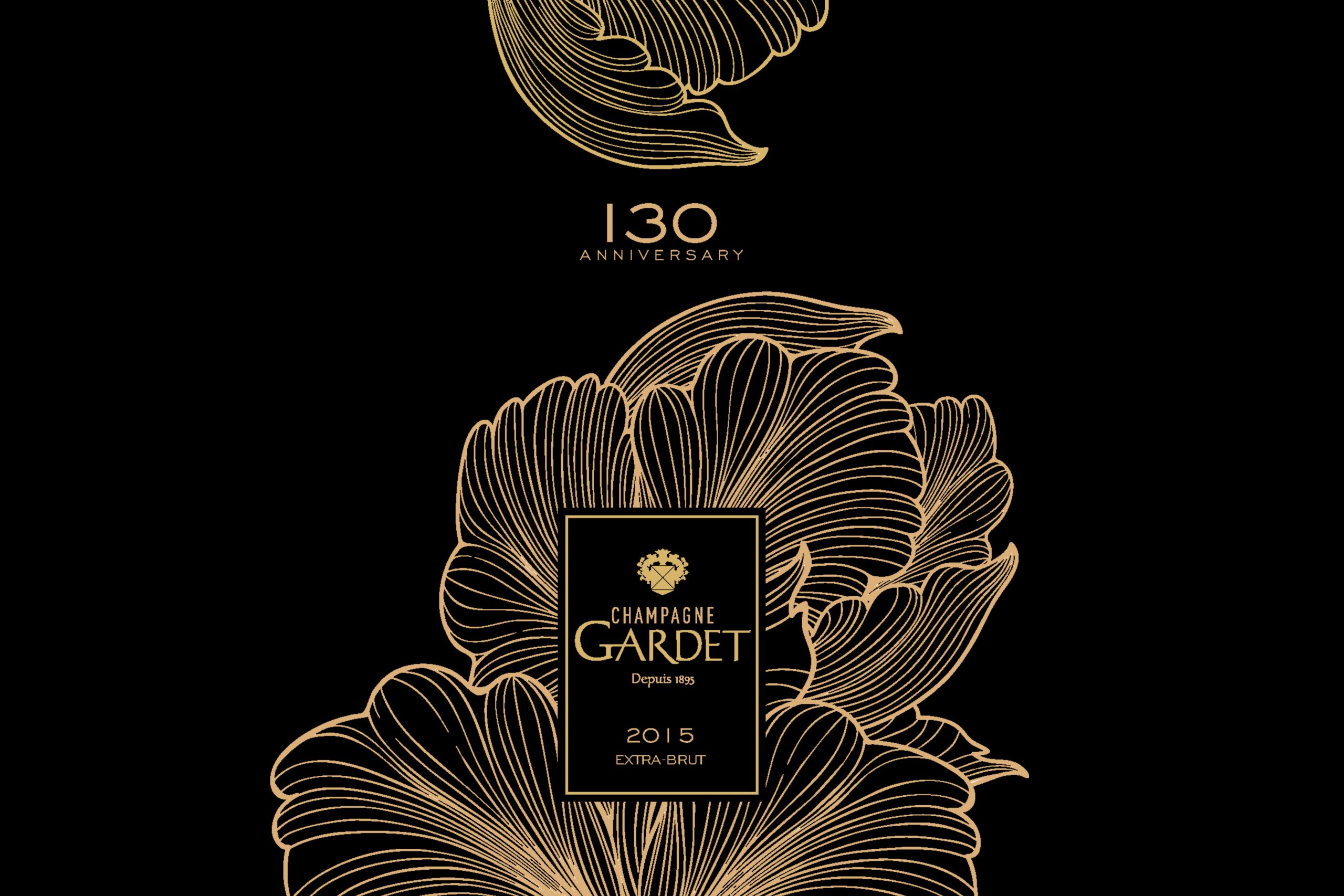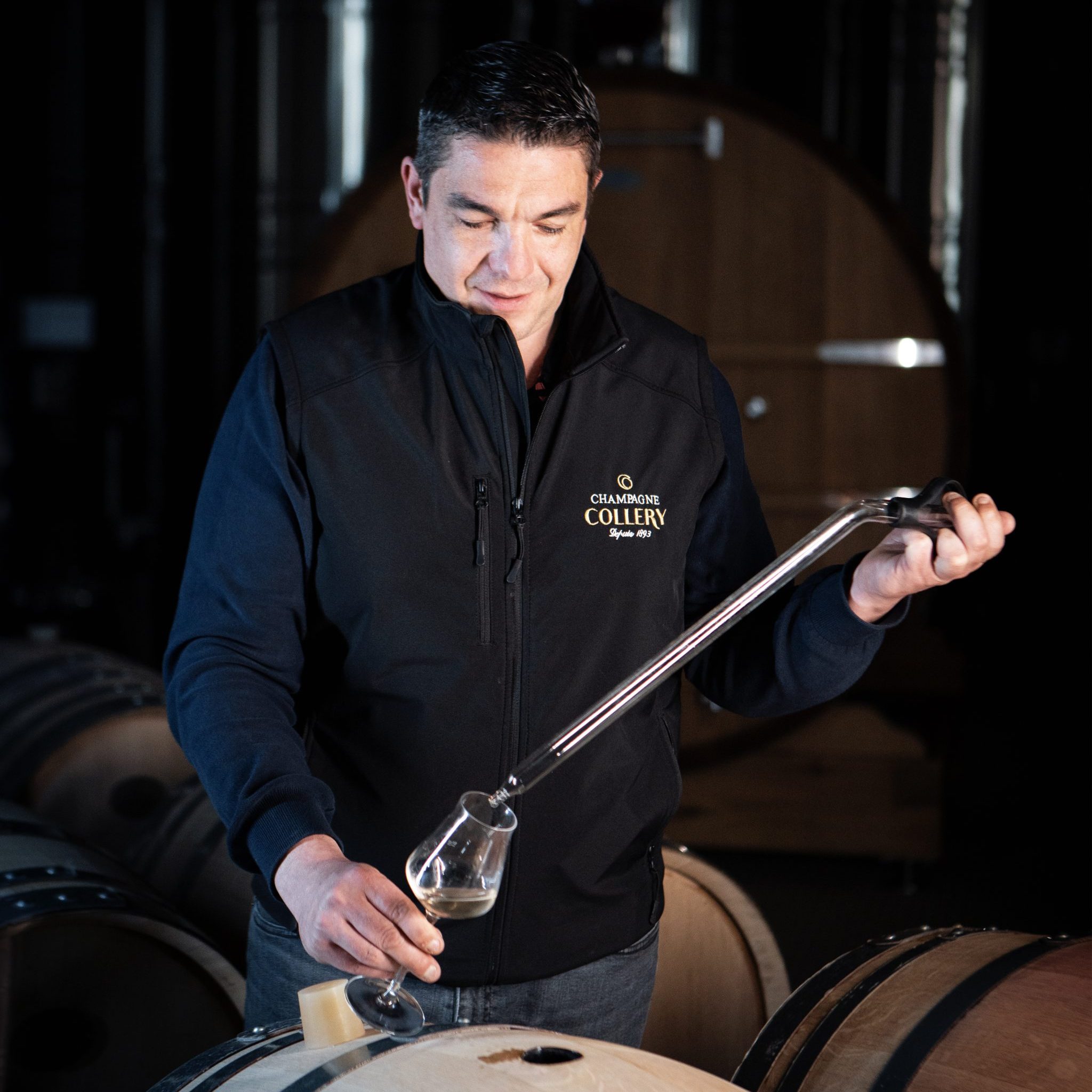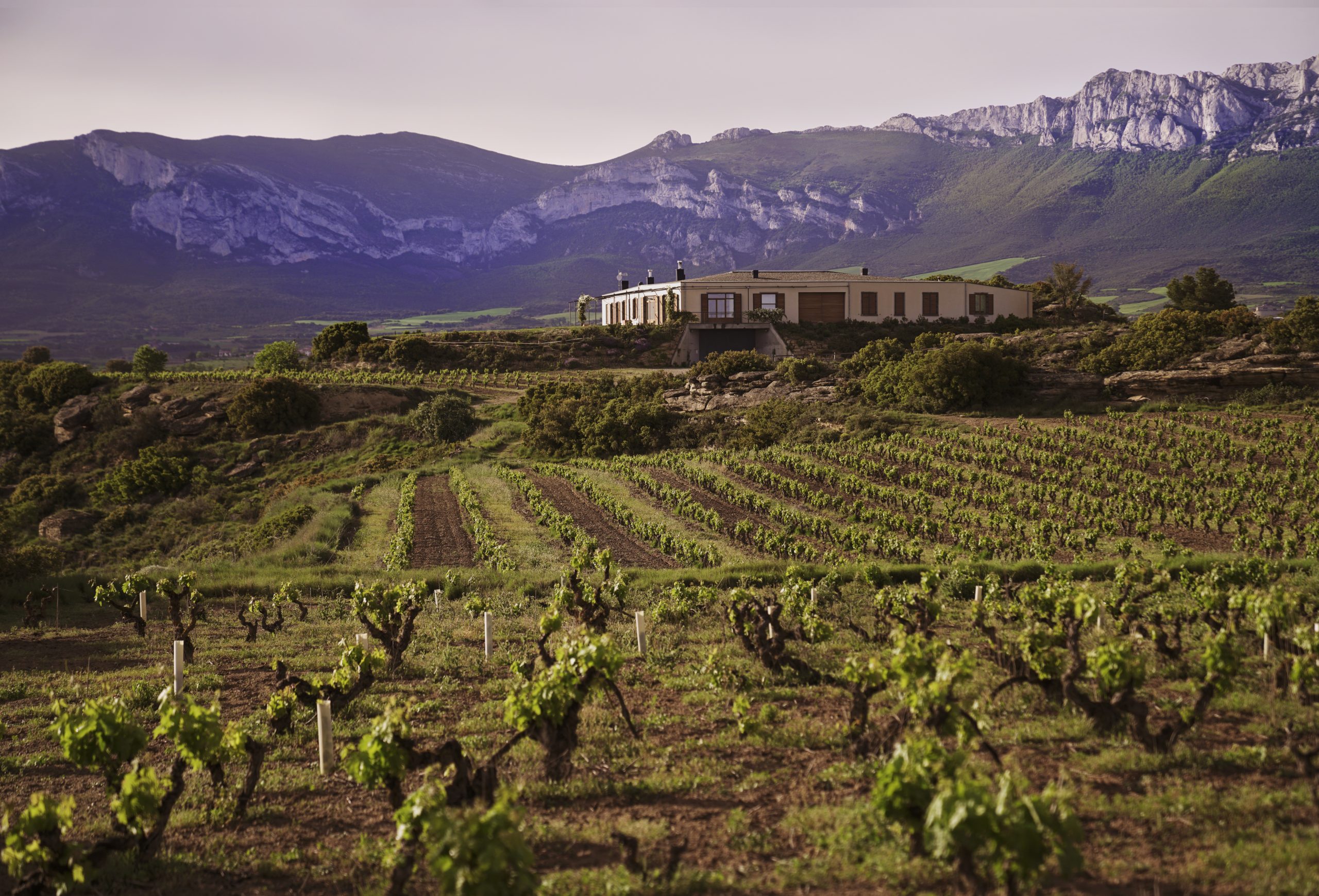12 scholarships and programmes to improve diversity in wine, beer and spirits
By Edith HancockWe’ve taken a look at scholarship programmes and advocacy groups that have recently launched to foster diversity in the drinks industry.
Brew master testing beer in brewery.
A number of studies have been carried out over the past few years that have proven the drinks industry has a problem with diversity. A survey last autumn found that wine buyers working New York’s fine dining sector are overwhelmingly white and male, while another white paper found that, despite Black people accounting for more than 13% of the US population according to a government census, they make up only 2% of the drinks industry.
Part of the problem lies in the cost of education. Many breweries and wineries require their staff to have a certain level of niche expertise if they want to take on a leadership position, and that means enrolling in degree programmes that wouldn’t necessarily give you a versatile set of qualifications to do something else if you couldn’t find work immediately. It was reported this summer that wealth gap between black and white households is as wide as it was in the 1960s, so it is not surprising that the drinks trade lacks diversity.
“POCs have 10% of the assets of white people in the US,” Garret Oliver, the head brewer of Brooklyn Brewery in New York, and one of the first prominent black brewers in the US, told the drinks business. At the low end a two-week brewing tech course can cost $3,000. A basic brewing course is $9,000 and a master brewers programme, $16,000. You can see why I haven’t had a single POC applicant at Brooklyn in my 30 year career.”
But following a wave of protests sparked by the death of George Floyd and Breonna Taylor at the hands of police this year, companies are starting to look at their own internal processes and work out how to attract talent from more diverse backgrounds. Trade bodies and industry giants from the world of wine, beer and spirits have all set aside funds for scholarship programmes that will give people the qualifications they need to, creating mentorship schemes for budding POC entrepreneurs, and establishing advocacy programmes to help others find work.
We’ve taken a look at some of the initiatives that have launched over the past two years that are designed to foster diversity and by extension, inclusion, in the drinks industry.
Beer
The Michael Jackson Foundation
Garret Oliver, head brewer at Brooklyn Brewery, is the MJF’s founding board chair. (photo: Wiki)
Named after the famed beer and whisky writer, the MJF fund is a scholarship programme for people of colour seeking to enroll in a brewing or distilling degree programme.
The lack of diversity in the drinks sector stems from a lack of wealth in ethnic communities, and is compounded by those communities not seeing role models who look like them, Garrett Oliver, the head brewer at New York’s Brooklyn Brewery and one of few high profile black brewers in the world, told db. Oliver started the Michael Jackson Foundation this summer.
Oliver says the MJF programme will help to create “serious brewers” who will form a wider support network for POCs who want to join the brewing industry, and change the face of beer for the next generation.
There are two scholarships in the fund: the Sir Geoff Palmer Scholarship Award for Brewing, which is named after Scotland’s first Black professor and covers tuition for courses offered by the Master Brewers Association of the Americas (MBAA), American Brewers Guild, UC Davis, and The Siebel Institute of Technology among others; and the Nathan Green Scholarship, named after Nathan “Nearest” Green, original master distiller for Jack Daniel’s Tennessee Whiskey. The MJF has so far received $170,000 in donations from more than 400 individual contributors worldwide.
Find out more here.
Brewing Change Collaborative
(Photo: iStock)
Launched in March 2019, the Minneapolis-headquartered Brewing Change Collaborative aims to foster diversity, equity, and inclusion for people of colour in the brewing industry through advocacy, outreach and education.
It is a club that aims to support POCs in brewing with regular meetings, funding brewing courses, and pre-pandemic, hosting festivals that celebrate Black-owned breweries.
The group’s mission is to improve visibility of people from minority backgrounds in the brewing industry, and in-turn making breweries feel safer and more inclusive for people of colour. 10 people joined the collaborative for the first meeting, and this year, the membership has multiplied to well over 100.
Find out more here.
Diversity in Brewing Scholarship
(Photo: iStock)
The Canada-based Diversity In Brewing Scholarship is an annual award for self-identifying BIPOC and/or LGBTQ+ students seeking to enrol at Kwantlen Polytechnic University (KPU).
The project coordinators set out hoping to persuade at least 25 breweries from Vancouver and beyond to commit to donating a minimum of $200, totalling a minimum $5,000 annual scholarship. Close to 40 have now donated to the fund.
Find out more here.
Budweiser’s scholarship programme
(Photo: Budweiser)
AB InBev has said it will award 30 scholarships annually over the next five years aimed at growing more Black representation in the beer brewing industry.
The brewer will work with the United Negro College Fund (UNCF) to hand out the scholarships, which will be named after Natalie Johnson, AB InBev’s first female Black brewmaster and its brewing director for North America.
Each year, 25 scholarships worth $4,000 will be awarded to students pursuing science, technology, engineering and math majors, which can lead to careers in beer brewing.
five interns within its brewing division will also receive a $6,000 scholarship to go fund the final year of their degree.
Find out more here.
WINE
WSET Level 2 with Majestic
(Photo: WSET)
UK retailer Majestic has launched its own Diversity in Wine scholarship, which will see up to 50 candidates from BAME or diverse backgrounds put through their WSET Level 2, free of charge and with no obligation to join the business on completion.
CEO of Majestic John Colley said: “If you don’t think the wine industry is for you, because of your background, then I would really urge you to get in touch.”
Majestic’s first scholarships will be available from this October, with the aim to get up to 24 candidates qualified in their WSET by the end of the year. A second intake is being planned for spring 2021. The courses, understandably, will be run online owing to the government’s rules on social distancing, but all course materials, samples, glassware and video courses will be delivered to participants homes.
Find out more here.
Wine Access’ Diversity in Wine Scholarship
Online retailer Wine Access launched a Diversity In Wine Scholarship Program at the end of September this year. The programme has been launched partnership with NBA Player and wine enthusiast Josh Hart and Napa Valley Wine Academy, and will reward 100 members of the BIPOC community who currently work in or aspire to pursue a career in the wine industry with the chance to learn from industry professionals and become WSET Certified.
High achievers in the programme can also earn additional opportunities including an educational trip to Napa with Hart.
Submissions close on 31 October, 2020.
Find out more here.
Napa Valley Vintners
Napa Valley Vintners has pledged over US$1 million for new scholarship and mentoring programmes that will increase the diversity, inclusiveness and growth opportunities in the wine industry.
The organisation is creating a new scholarship programme with the United Negro College Fund (UNCF) for people of colour to pursue college degrees in subjects including grape growing, winemaking, marketing, business and related wine industry careers.
Partner Content
The million-dollar program will spend $200,000 annually on scholarships over the next five years, which will be open to black, indigenous, Latinx and other candidates of colour.
Napa Valley Vintners also plans to continue fund raising among its members to build the scholarship fund beyond this initial commitment.
A separate grant of more than $100,000 is also being made for mentoring programmes being created in cooperation with two industry organisations, Wine Unify and Bâtonnage, both of which are committed to achieving equal representation, equal opportunities and equal leadership positions within the wine industry.
BAME Wine Professionals
A new website was set up in September to provide more exposure to black and minority ethnic people working in the wine trade.
Called BAME Wine Professionals, it features people working in all corners of the sector, including sales, hospitality, marketing and PR, wholesale, winemaking, buying and logistics, as well as wine educators and communicators.
It was created by Mags Janjo of MJ Wine Cellars and Jancis Robinson MW, months after a survey of hundreds of people working in wine revealed a significant lack of diversity and problems with inclusivity across the industry.
Janjo said that diversity is “an uncomfortable and much-avoided topic” in the wine trade.
“Fortunately, the wine industry and society as a whole are now giving this the spotlight it deserves. My goal at BAME Wine Professionals UK is to unearth, celebrate and promote BAME talent in the wine industry.
“I strongly believe the industry will be richer and better for more diversity.”
The website’s creation was funded by Jancisrobinson.com, but the pair are encouraging anyone who can to support the website with donations, sponsorships and mentorship programmes.
The project already has the support of the Wine & Spirit Trade Association (WSTA), Sukhinder Singh of Speciality Drinks Group, Ian Harris, chief executive of the Wine & Spirit Education Trust (WSET), Ayo Akintola of Oddbins, Regine Lee MW of Liberty Wines and Women in Wine LDN, and Michael Saunders, chief executive of distributor Bibendum.
Find out more here.
Spirits
The Nearest & Jack Advancement initiative
Historic image of Jack Daniel seated next to George Green, the son of Nathan “Nearest” Green, credited as the USA’s first Black master distiller. (Photo: Wiki)
Tennessee whiskey makers Jack Daniel and Nearest Green have put forward $5 million to launch a joint initiative aimed at increasing diversity in the American whiskey sector.
The distilleries have created the Nearest Green School of Distilling at Motlow State Community College; a Leadership Acceleration Program that grants apprenticeships to Black whisky industry professionals who aspire to take on a managerial or leadership role in the industry; and a Business Incubation Program providing mentorship to Black entrepreneurs.
Tennessee-based Motlow State College has worked with leaders from both companies over the past year to develop a curriculum for the Nearest Green School of Distilling. The programme is now awaiting approval and may be offered as early as autumn 2021.
The LAP will offer apprenticeships to African-Americans currently in the whiskey industry, who want to become a head distiller, head of maturation or production manager. The inaugural apprentices have already been chosen and will begin working at top distilleries across the US.
The BIP will offer entrepreneurs mentorship in all areas of distilling, including access to marketing firms, branding executives, expanded distribution networks and other assets and opportunities to grow their spirits businesses.
Find out more about the two producers’ support systems here.
American Distilling Institute Distilling Research Grant
This initiative is geared more towards those who have an interest in the science behind spirits. It has often been said that there is too great an emphasis placed on spirits specific education in the drinks industry, but this grant has been previously awarded to academics in the fields of engineering and chemistry, so it provides a way to create a more diverse industry. The research grant supports original research with the aim of advancing the knowledge of America’s craft distillers, and is funded by the institute’s online auction house.
Research proposals are reviewed by an independent advisory committee made up of consultants from the worlds of academia, government, and the distilling industry. Topics that have been awarded grants in the past include using ancient stills in the 21st century.
The committee will disperse funds for either research of distilled beverage alcohol or interns to distilleries, and the receiver of the grant will publish their findings once they complete either.
The American Distilling Institute is accepting proposals until 25 November.
Find out more here.
The Kentucky Distillers’ Association–University of Kentucky Scholars Program Fund
Lexington, Kentucky, USA – April 22, 2016: University of Kentucky banner on the exterior of Commonwealth Stadium in downtown Lexington.
Last month, the Kentucky Distillers’ Association set up a fund to support four students per year through the University of Kentucky’s distillation, wine and beer programme, with a view to bringing in students who may not have otherwise been able to afford to enrol.
KDA will fund 27 credit hours while the UK College of Agriculture, Food, and Environment, Gatton College of Business and Economics, and UK College of Engineering will cover the remaining 18 credit hours, resulting in a total of 45 credit hours. Successful KDA scholars will also be provided with internship opportunities to gain hands-on experience.
Find out more about the course here.
The Black Bourbon Society
Black Bourbon Society founder Samara Rivers (Photo: BBS)
The Black Bourbon Society revived plans for a non-profit consultancy that seeks to improve diversity in the whiskey industry this year.
The Black Bourbon society first launched its new consultancy, Diversity Distilled in January. Diversity Distilled seeks to improve diversity in the drinks sector in both a top-down and bottom-up approach. It looks after things like job training, and education for POCs who want to work in the spirits sector, and also assists brands in proactively recruiting, retaining and promoting a diverse workforce both internally and across executive leadership teams.
The pandemic and subsequent lockdowns across the US forced the industry group to delay announcing the launch, and its plans to host the Diversity Distilled Spirits Conference. As such, little has been said of the consultancy in the first half of the year.
However, the project was officially launched in the wake of widespread protests after the death of George Floyd at the hands of a police officer in Minneapolis, Minnesota, in June.
In a statement on the society’s Instagram profile, Samara Rivers, CEO and founder of Black Bourbon Society, and Armond Davis, COO of Black Bourbon Society, said that the company has “created collaborative content and programming through our social media platforms and curated events and experiences that facilitated genuine engagement between Bourbon brands and our membership throughout the country.”
Find out more here.




